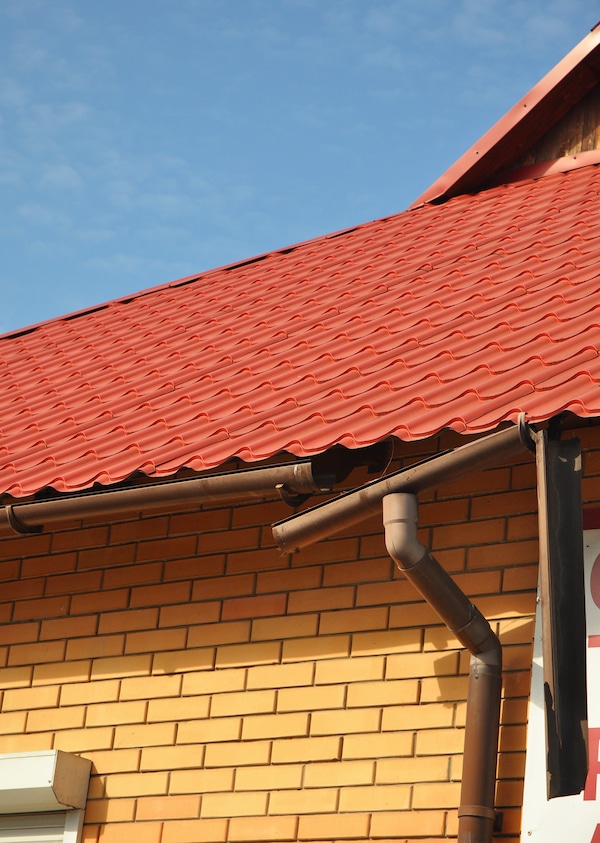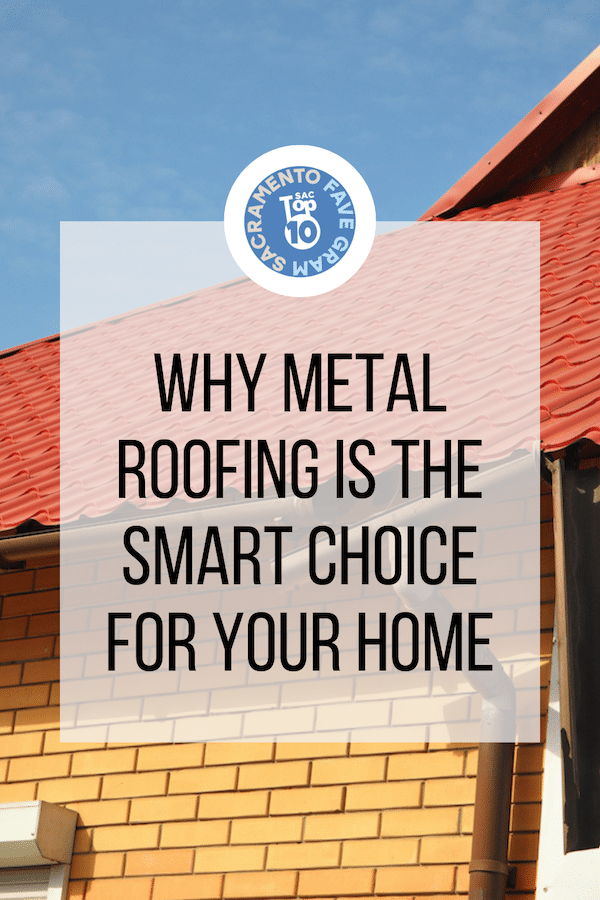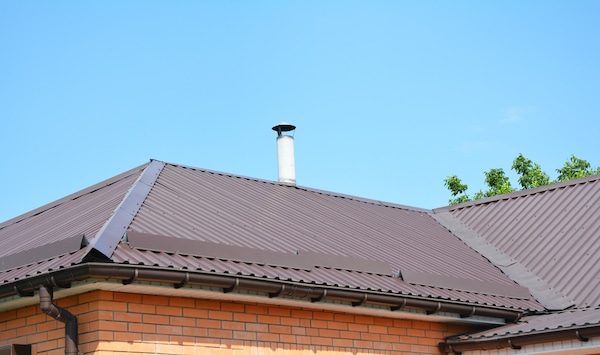If you’re planning a home improvement project, choosing the right roofing material is an important decision. Your roof protects your home and everything inside it, so it’s essential to choose a material that is durable, weather-resistant, and energy-efficient. When it comes to roofing materials, metal roofing is a smart choice for homeowners. Here are the reasons why:
Advantages of Metal Roofing
One of the biggest advantages of metal roofing is its durability and longevity. Metal roofing materials are built to last for several decades, and they require minimal maintenance compared to other roofing materials. This means that you’ll save money on repairs and replacement costs in the long run.
Another advantage of metal roofing is its energy efficiency. Metal roofs reflect sunlight, which helps to keep your home cooler in the summer. This can translate into lower energy bills and reduced carbon emissions. Additionally, many metal roofing materials are made from recycled materials, making them an environmentally friendly choice.
Metal roofs are also weather-resistant, making them a smart choice for areas with extreme weather conditions. They are fire-resistant and wind-resistant, which can help to protect your home and your family in the event of a natural disaster.
What are the different types of metal roofing materials available?
There are several types of metal roofing materials available, each with its own set of advantages and disadvantages. Here are some common types:
- Steel roofing: Steel is the most commonly used metal roofing material. It’s affordable, durable, and easy to install.
- Aluminum roofing: Aluminum is a lightweight and corrosion-resistant metal that is often used for coastal areas or buildings with high humidity.
- Copper roofing: Copper is a premium metal roofing material that is known for its beauty and longevity. It is often used for historic buildings and high-end homes.
- Zinc roofing: Zinc is a durable and environmentally-friendly metal roofing material that can last for up to 100 years. It’s often used for commercial buildings.
- Tin roofing: Tin is a traditional metal roofing material that is affordable and easy to install. It’s often used for barns and sheds.
- Galvalume roofing: Galvalume is a type of steel roofing that is coated with a mixture of aluminum, zinc, and silicon to increase its durability and resistance to corrosion.
Each type of metal roofing material has its own unique properties and characteristics, and the best choice will depend on factors such as budget, style preference, and location.
Return on Investment and Home Resale Value
When you invest in a metal roof for your home, you can expect a high return on investment. Metal roofing is a premium material that adds value to your home. In fact, according to a recent study by Remodeling Magazine, metal roofing has the highest return on investment of any home improvement project.
In addition to increasing your home’s value, metal roofing can also improve its resale value. Homebuyers are often willing to pay more for homes with high-quality roofing materials, such as metal roofing.
Installation Process
The installation process for metal roofing is straightforward, but it’s essential to hire a professional roofing contractor to ensure that the job is done correctly. A roofing contractor can help you choose the right type of metal roofing for your home and provide expert installation services.
Green Roof Metal Roofing Roofing Factoids Shingle ColorsFAQ – Frequently Asked Questions
Metal Roofs
Metal roofs can last anywhere from 40 to 70 years or more, depending on several factors such as the type of metal used, the quality of the installation, the amount of maintenance it receives, and the climate in which it is located. Proper maintenance, such as keeping the roof clean, inspecting it regularly, and addressing any issues promptly, can help extend its lifespan. Additionally, choosing a high-quality metal roofing material and hiring a reputable roofing contractor can also increase the longevity of a metal roof.
While metal roofing can be more expensive upfront than other roofing materials, it offers a high return on investment and can save you money on maintenance costs in the long run.
In most cases, metal roofing can be installed over an existing roof. This can save time and money on the installation process.
One of the potential downsides of metal roofing is that it can be noisy during rainstorms. However, this can be mitigated by adding insulation during the installation process.
Yes, metal roofs are considered to be energy efficient. They reflect more sunlight and heat than traditional roofing materials, which can help reduce cooling costs during the summer months. Additionally, some metal roofing materials are available with insulating properties that can help reduce energy consumption year-round.
No, metal roofs do not attract lightning. They are no more or less likely to be struck by lightning than any other type of roofing material.
Yes, metal roofs can be painted. However, it’s important to use a high-quality paint that is designed for use on metal roofing, and to follow the manufacturer’s instructions for application.
Metal roofs are not inherently noisy in the rain. When installed correctly with a solid roof deck and proper insulation, metal roofs can actually be quieter than traditional asphalt shingle roofs. However, if a metal roof is not installed properly or has insufficient insulation, it may produce more noise in the rain. Additionally, factors such as the shape and pitch of the roof, as well as the size and spacing of the metal panels, can also affect the level of noise generated by a metal roof during rain events.
One of the biggest problems with metal roofs is that they can be prone to condensation buildup. When warm, humid air comes into contact with a cool metal roof, it can create moisture on the underside of the roof, leading to potential issues such as mold, rot, and corrosion. Proper insulation and ventilation can help prevent condensation buildup, but it’s important to consult with a professional roofing contractor to ensure that your metal roof is installed correctly and with the appropriate measures in place to address this potential issue.
Conclusion
If you’re looking for a durable, energy-efficient, and weather-resistant roofing material for your home, metal roofing is an excellent choice. Not only does it offer a high return on investment, but it can also improve your home’s resale value. Contact a professional roofing contractor today to learn more about your options for metal roofing.






